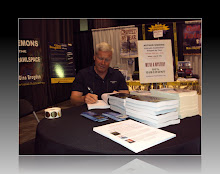
Writers are always wondering about the length of the book they are writing. Should they be counting pages or words? Most publishers will ask for a word count, rather than page count. The number will vary with each author, depending on style, and I've heard a lot of numbers thrown about. My best answer is this: anything under 50K is considered a novella, and over that number would be a novel. The average word count for a novel is generally between 80 - 120K. Of course the best answer is to continue to write until you've finished telling your story.
















